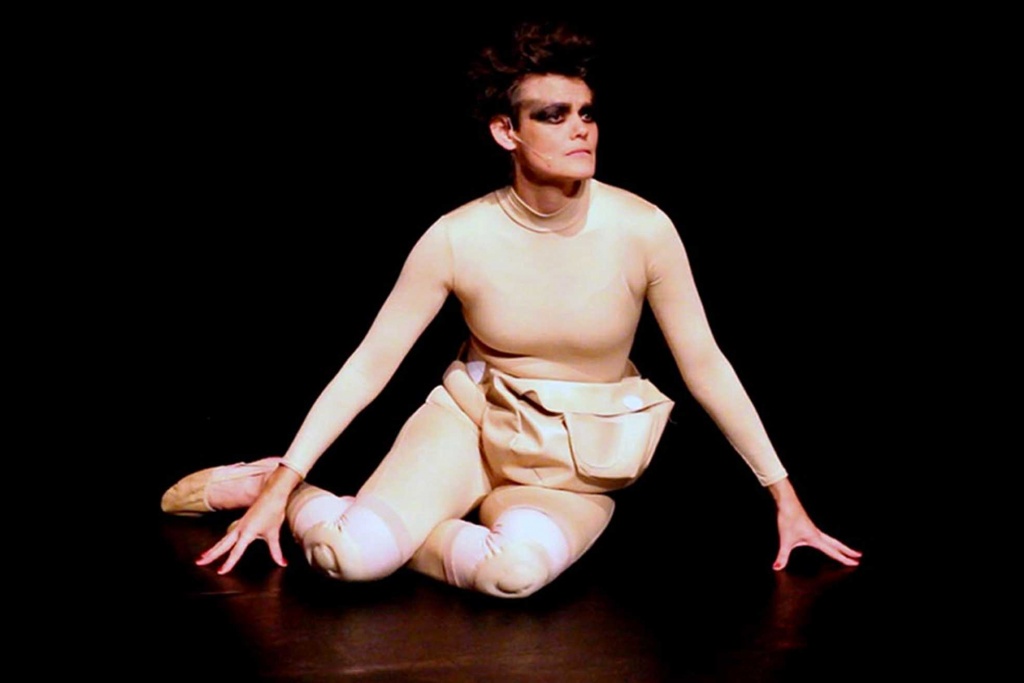Throughout June, Lightbox Film Center is screening important films by LGBTQ filmmakers that address issues of pride, representation and community.
“Queer Genius” (7 p.m. June 13) is director Chet Catherine Pancake’s galvanizing documentary that profiles five queer female artists. Of local interest is the section on Rasheedah Phillips and Camae Ayewa (aka. Moor Mother), who run a Black Quantum Futurism collective in North Philadelphia. Phillips is also an advocate for housing; she is seen testifying at City Hall regarding homelessness and discusses redevelopment efforts in North Philadelphia’s Sharswood neighborhood.
The collaborators pair soundscapes with spoken word to engage with queer voices and science fiction. (One performance is filmed at Union Transfer.) They also talk about their lives, experiences and theories in engaging interviews.
Pancake’s film opens with a segment on the late Barbara Hammer, who discusses her life, archive, legacy and career as a visual artist, addressing her use of filters in her films. Several scenes observe Hammer putting a gallery exhibit together or performing her work, “Breath.” She is also seen being interviewed at Temple University in 2018. (Coincidentally, Hammer’s film “Nitrate Kisses” will also screen at Lightbox.)
“Queer Genius” also includes an interview with Jibz Cameron, aka Dynasty Handbag, who is seen in her closets describing her favorite outfits, as well as performing on stage.
Rounding out the documentary is a portrait of lesbian poetess Eileen Myles, who has achieved considerable fame in her career. She is seen reading her work and talking about her life, her sobriety and her political attitudes.
What emerges is an inspiring portrait of provocative and legendary artists-activists.
This year marks the 30th anniversary of Marlon Riggs’ landmark film, “Tongues Untied” (7 p.m. June 20), a brilliant fugue of black gay male voices and images.
A penetrating look into African-American gay male (in)visibility, it contains poetry by Essex Hemphill and anecdotes that recount experiences of marginalization and the justifiable anger and sadness of gay men of color.
“Tongues Untied” is rife with stories of abuse, negative perceptions and condescension. Riggs also calls out the lack of gay black male images in American culture. A sequence set in San Francisco’s Castro district — where black men are immersed in vanilla and don’t lock eyes on the street — is particularly telling.
“Tongues Untied” rallies for acceptance, appreciation and excellence as it provides a cornucopia of inspiring photos and songs, in addition to film clips of black men loving black men — deemed “a revolutionary act” — to show positivity.
Also shown is the impact of AIDS and lessons from snap divas. Men participate in the ballroom scene and a gay Pride parade, showing the visibility and reclamation of identity. Riggs’ film is a clarion call — one that is both dense and forceful.
“Tongues Untied” is accompanied by Riggs’ video, “Anthem.” Using symbols of the American flag and the pink triangle, images of black gay men kissing and embracing and texts that read “pervert the language,” this short encourages radicalism. It illustrates Riggs’ skills as a filmmaker as he creates potent messages about representation and speaking truth to power.
Su Friedrich’s documentary/narrative hybrid, “Hide and Seek” (7 p.m. June 27) investigates how young girls discover and acknowledge their lesbianism and queerness.
Friedrich interviews various queer women about their experiences growing up and their exposure to and understanding of their sexuality and sexual difference. They discuss tomboy phases, crushes and gender-identity issues (e.g., asking women if they ever wanted to be boys).
The filmmaker also provides a (fictional) story of Lou (Chels Holland), a young teen who comes to appreciate her same-sex desires as she interacts with various girls from school.
The mix of personal stories, photographs and film clips, as well as Lou’s interspersed narrative, creates a prismatic approach to the way queer girls and women experience shame and acceptance. Her film underscores the importance of gender and sexuality in society and the power of embracing one’s lesbian and/or queer identity.
In a recent phone interview, Friedrich explained her intent in making the film.
“I wanted to make a film about lesbians when they were children — so let me talk with people. I sat down and thought of 20 questions, which ranged from: What were your school experiences and with friends? How aware/unaware were you [that you were lesbian]? What part did religion play? And what were your first experiences? I wanted people to reflect on their experiences. I did 20 interviews and I really wanted to do a narrative alongside it. It was like the interviews were research, but then I thought, that might be what the film is made of.
“There were things from the interviews that I used in the fiction, like a woman recounting the stroking of a girl’s arm,” Friedrich added. “I had an interest in narrative, so I wanted to recreate this world [of baby dykes]. I didn’t know what form it would take until I did the editing. When I shot the narrative, I didn’t know how the interviews would interact with the narrative or the archival material, but the interviews are so great I wanted to include them.”
Friedrich will attend a post-screening discussion of “Hide and Seek.”
Films will be screened at Lightbox Film Center, 3701 Chestnut St. For more information, visit lightboxfilmcenter.org.
